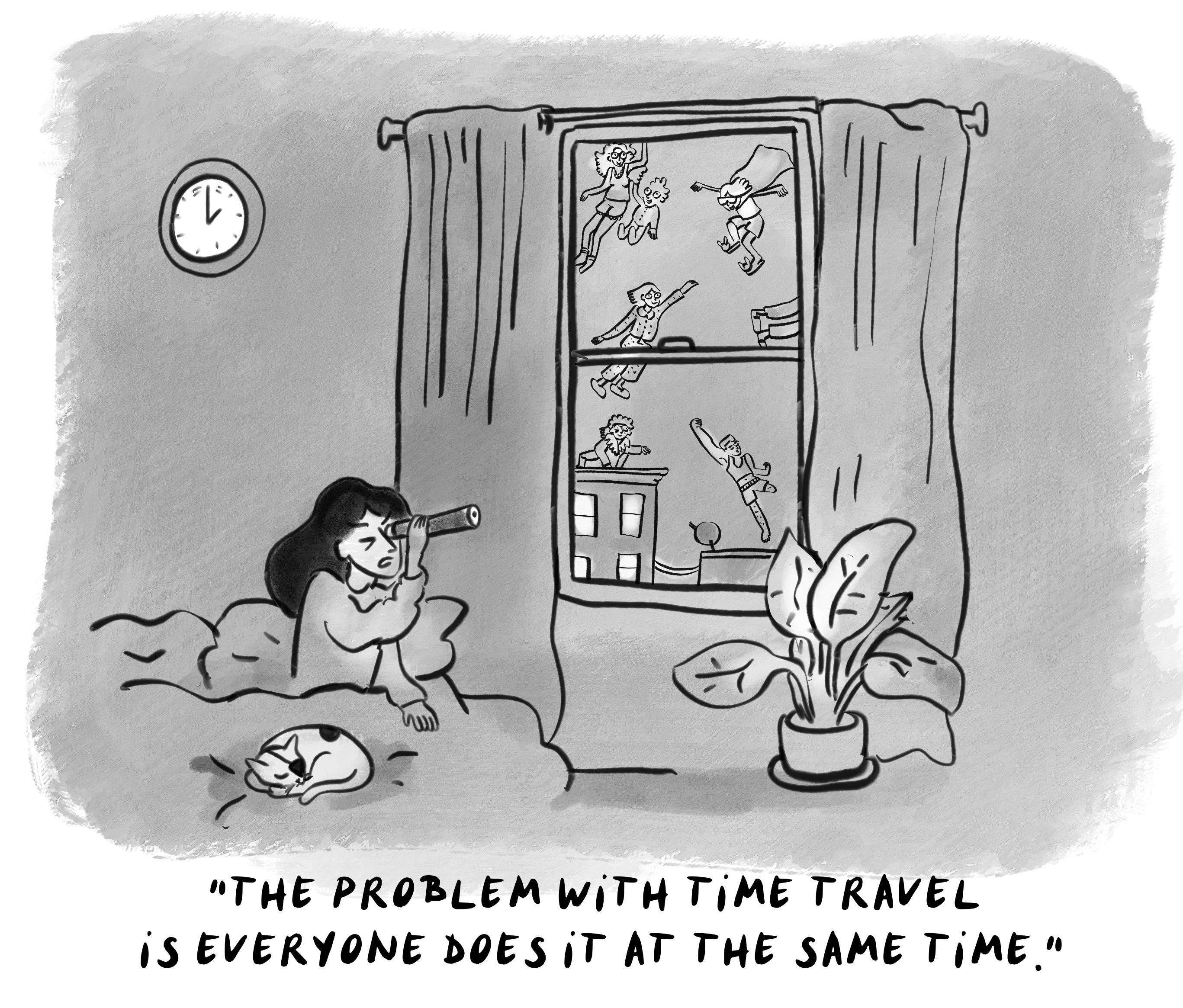You’ve got A-Mail! An email newsletter written by me, Anna Codrea-Rado. Never turn the hands of a clock backwards'As long as you look up from time to time, you'll see that time sleeps in the sky too.'
I was dreaming of my friend. My eyes are itchy but from my position in the bed, if I just flick my gaze on the diagonal, I can see the clock on the windowsill. 7.38 am. It’s annoying how easily I wake up early on weekends while I struggle during the week. According to an online quiz I once took about my “chronotype”, that makes me a bear. Does that also explain why I prefer the feeling of falling asleep to that of waking up? I scoop my phone off the floor and turn it over. 6.38 am. Through my drowsy haze, confusion gives way to a burst of victory and delight. The end of daylight savings! The sweetest Sunday of the year. Realising I have an extra hour in the day feels like a cosmic win—the temporal equivalent of finding money on the street. Little signals ping throughout the day reminding me of this gift. I get into the car, see the wrong time on the dashboard, and the delicious feeling washes over me once again. Later, the dog starts whining at 4 p.m. for her five o'clock walk. It’s a strange feeling, as though the day itself is jetlagged—I haven’t crossed a time zone, it has come to me. There's this line I've carried around for years, from an unpublished poem I found in a profile of the artist Jason Bard Yarmosky: "As long as you look up from time to time, you'll see that time sleeps in the sky too." I always loved how the words sounded, even though I didn’t fully understand the meaning. Now, watching the sun dip below the tree line earlier than usual, I think I get it. Every year, the clocks go back, and for one fleeting moment, we pretend we have mastery over time. Unlike birthdays, anniversaries, or holidays — those reminders of time's relentless march — this feels like a magic trick we’re all in on. But even the best magic tricks are still only ever brilliant illusions. Years ago, on a spring night when I was in my late teens. I’d driven into central London with my friends to go to a sweaty basement club. When we came back to the car, we found an angry yellow plastic envelope slapped on the windshield and the wheel clamped in place. Back then, without a credit card or a smartphone, the only way to release the car was by calling my dad to ask him to pay the fine over the phone. I cringed as I dialled. What should’ve been 1.45 am had sprung to 2.45 am. It was bad enough calling my dad in the dead of night to bail me, but that it happened on the night the clocks went forward made it infinitely worse. “Almost 3 in the morning” just feels so much later than 1.45 am. Have you ever tried to turn back the hands on a mechanical clock? Growing up, we had a Swiss cuckoo clock that needed regular winding. One day, the time had stopped, so I turned the hands counterclockwise. I felt resistance, a push against the edge of my finger. Before I could stop, I’d already broken it. We can’t go back in time. We might kid ourselves that we can control it—that we can manage time—but we can’t. Because that victorious feeling when the clocks go back isn’t actually a win; it’s a loan. The hour we borrow in autumn comes due in spring. And the price to pay is jolting awake to find time has shifted from underneath us, while we were lost in sleep–maybe, just hopefully, while dreaming of friends. |


